Grace López Realpe

Natura Insurrecta (NI) is a self-managed ecological organization located in Quito. It belongs to Bloque Proletario, which is a Popular Front Movement that brings together various organizations of workers, peasants, students, women, artists, popular neighborhoods, and aims to develop a new revolutionary current in Ecuador. NI was formed in 2016 to face social and environmental issues from a materialistic position through ecological, social, and economic analysis. Given the strong impact generated by the COVID-19 pandemic, in 2020 they built three urban community orchards in the peri-urban area of Quito, at Zabala-Calderón, the Commune of Sorialoma in Guangopolo, and San Francisco de Miravalle (Figure 1). In cooperation with local communities, they have opened spaces to work the land with two objectives:
- To support food sovereignty at popular areas from Quito, through the production of a variety of agricultural products and preparation of “community pots” in the following neighborhoods: Guamaní, La Lucha de Los Pobres, Zabala, Carapungo, and Comité del Pueblo.
- To promote community orchards as spaces for political training and collective learning.
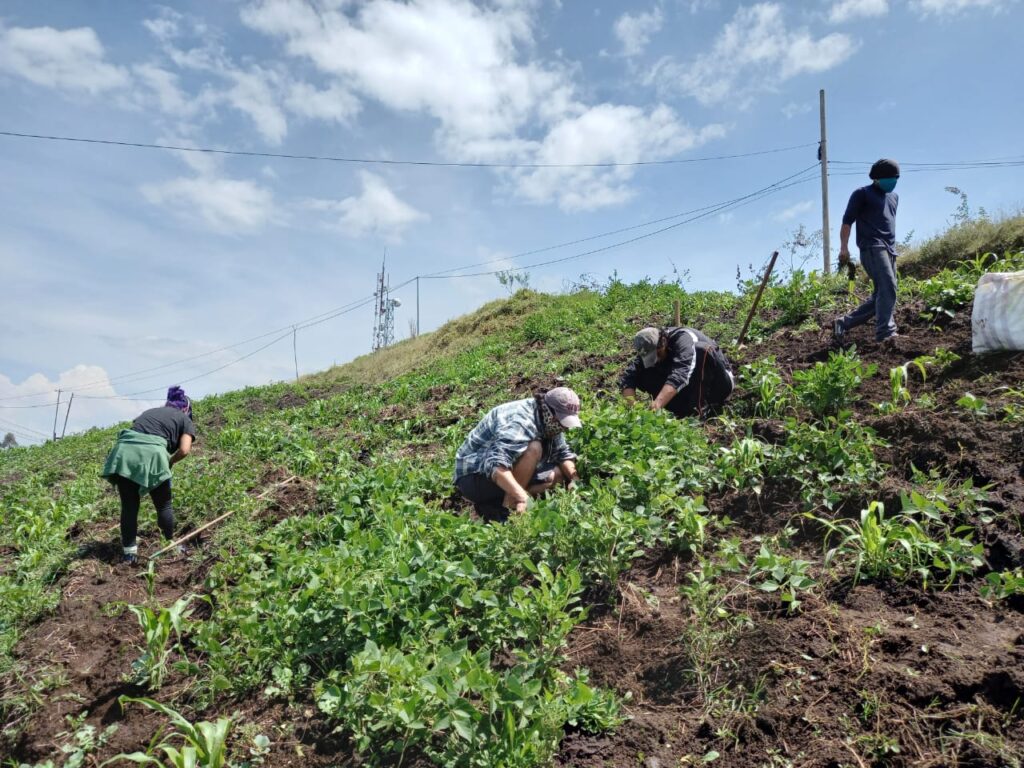
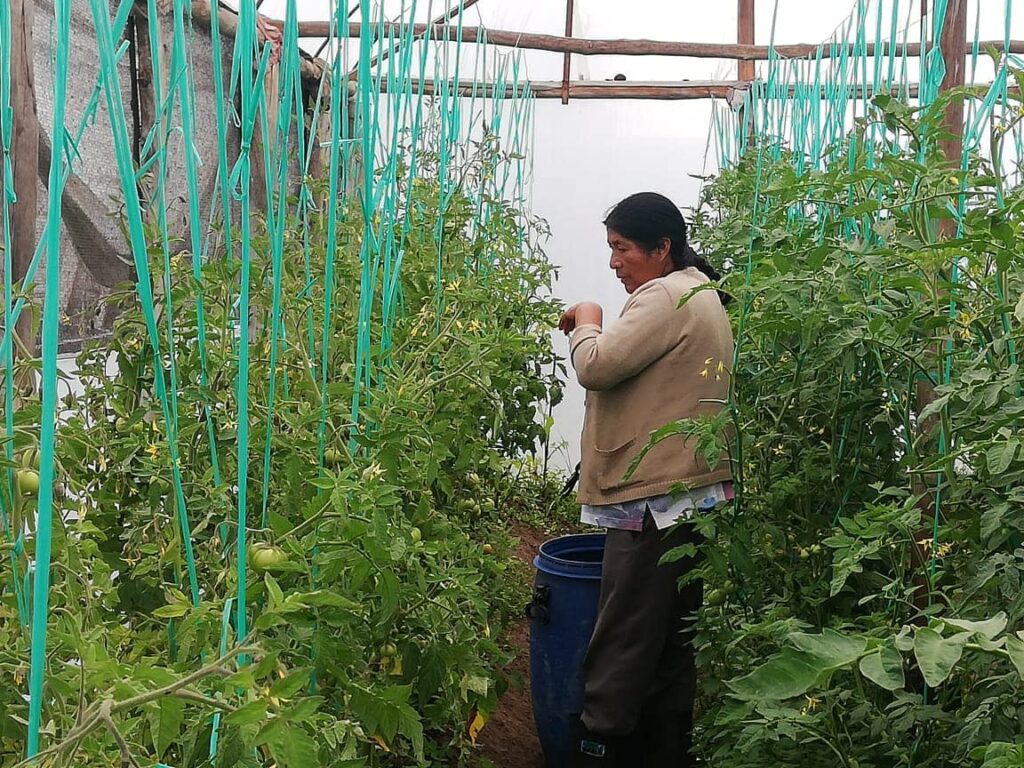
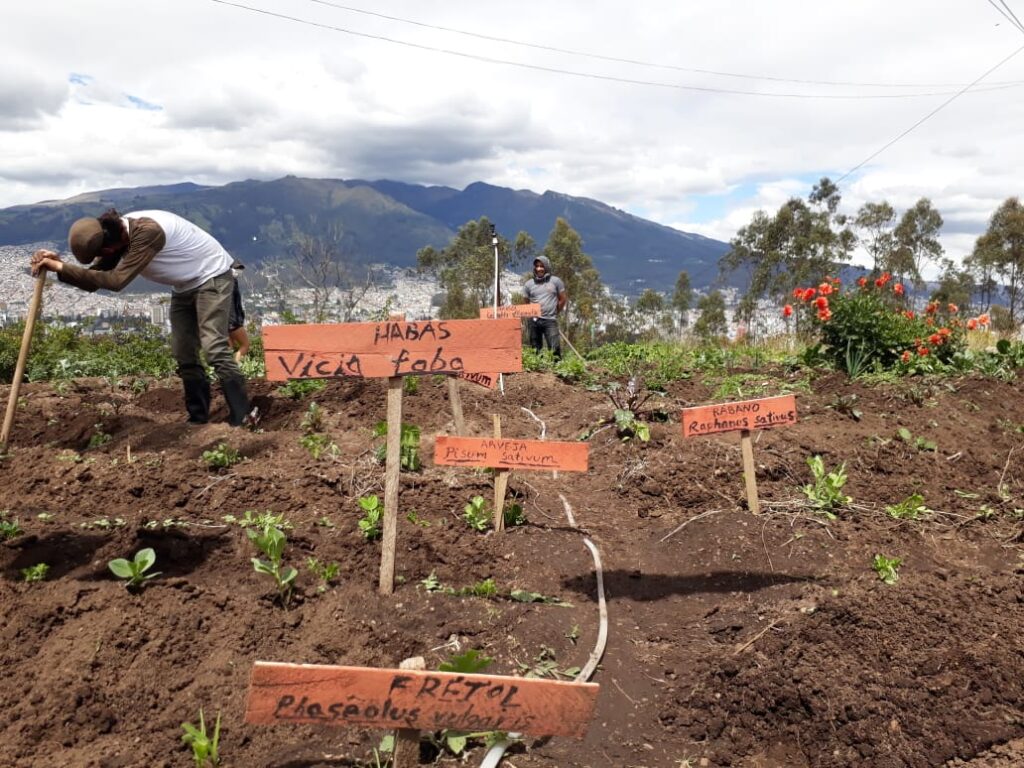
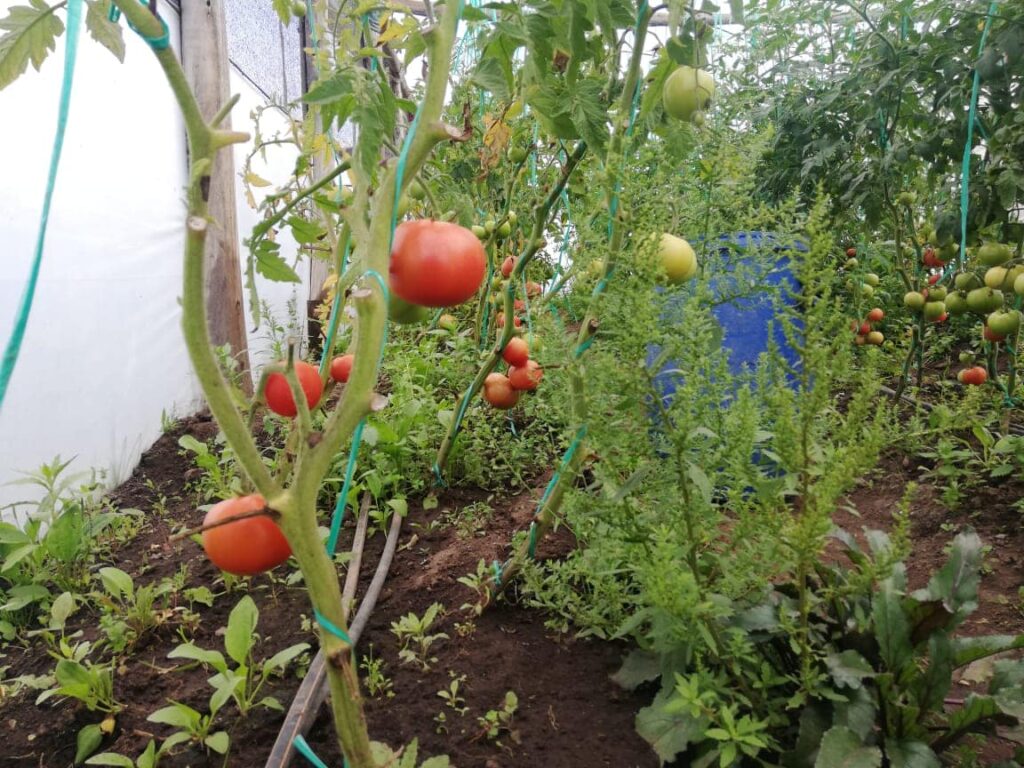
NI works together with other organizations from Bloque Proletario such as Luna Roja, which defends women’s rights; ASOTRAB, which organizes non-regulated street vendors and sexual workers; and La Pobla, which works at neighborhoods and helps with the coordination of “community pots” at marginalized areas from Quito. The “community pots” is an initiative that consists of the collective preparation of food to face hunger in popular areas of Quito (Figure 2).
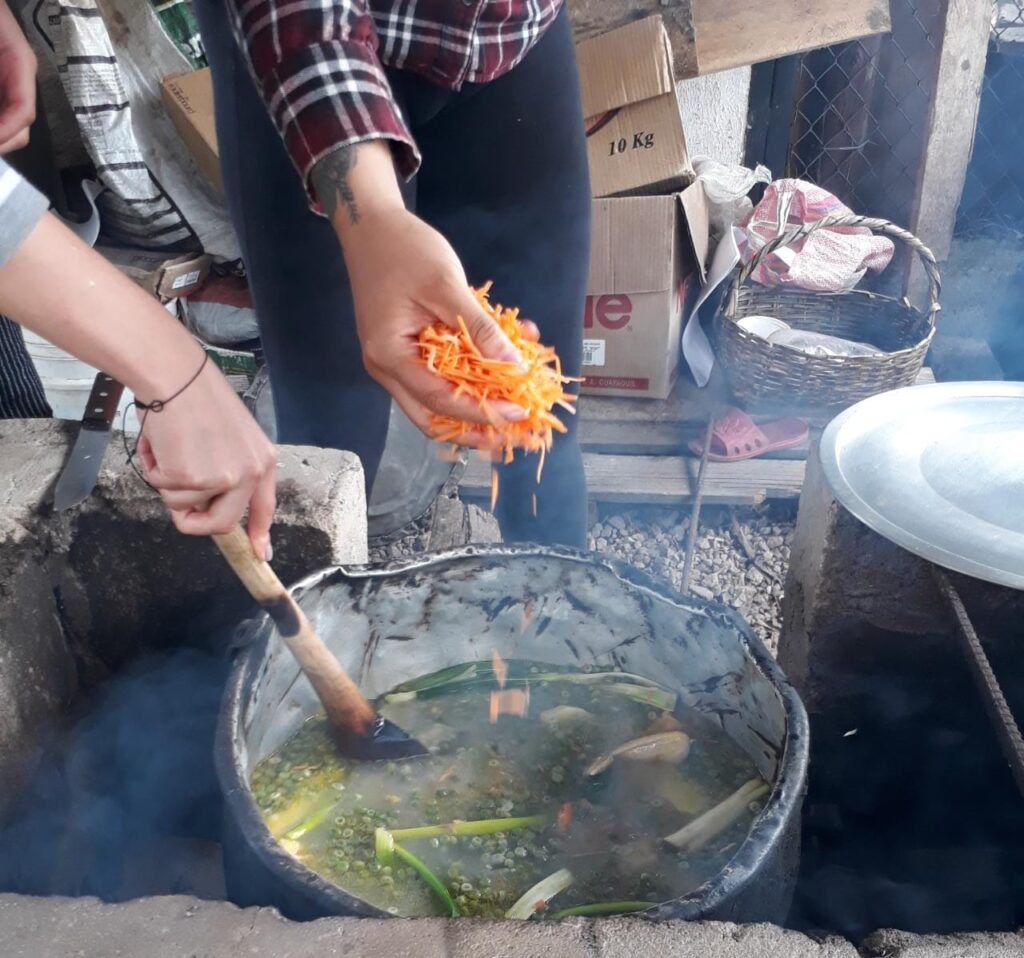
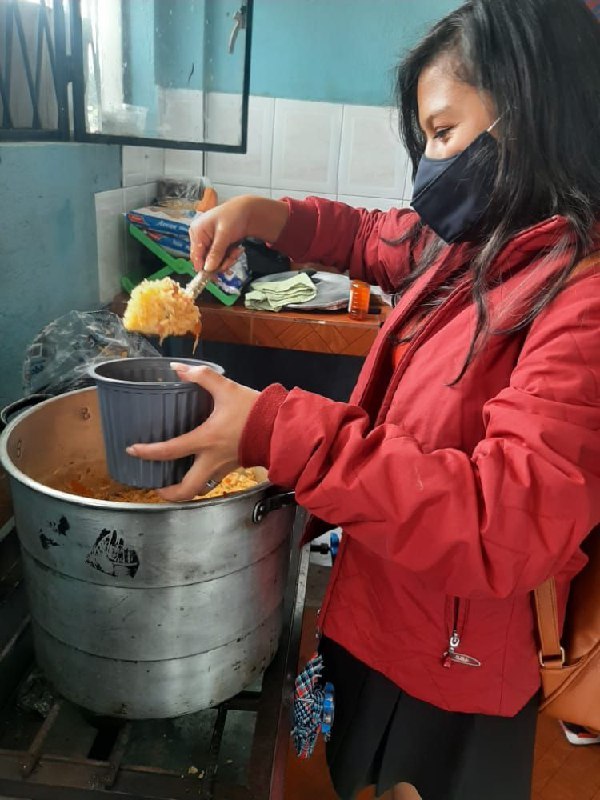
Urban farming activities play a mitigation role in climate change since they are green spaces in cities that act as carbon sinks.In addition, NI’s urban community orchards are managed in an agroecological manner, promoting sustainable agriculture that supports changes in food consumption patterns and enables the reduction of food transportation and storage, allowing a decrease in the use of fossil fuels. Composting practices are also developed, contributing to better management of organic waste.
Community orchards are also adaptation practices to climate change because they improve resilience by reducing the exposure and vulnerability to the lack of food, faced by people living in poor neighborhoods. Besides, through collective action to produce food, the community develops self-sufficiency and control over agricultural systems, allowing localized appropriation of production spaces, but also practices linked to caring for the environment at the local level, health care; all this outside of transnational companies or public policies as bodies that organize food production and consumption.
NI’s main principles are self-management, collective action, class independence, and free transfer of knowledge. They consider that nature problems are exacerbated by capitalism, thus to protect nature and the environment it is necessary to organize and come together between different oppressed sectors. NI acts from a radically popular view; their causes include the women’s rights movement, the fight against power and oppression, and the importance to develop a project free of institutions such as political parties and NGOs. Its purpose is to develop new paths of organizing to reach social and environmental justice. Community orchards are a means and not an end, to promote agency, political activation, understanding of reality, and raising awareness.
The processes developed at the orchards show that the changes and repairs to reduce the precariousness of life in the cities, and the destruction of nature, must take place at a collective level, not at an individual one.
Since its formation in 2016, it has carried out several initiatives such as annual political training schools, study circles, forums in universities, discussions, among others. The creation of urban orchards is a project framed in the work in neighborhoods that took shape in 2020, in the context of the global pandemic. In one year of operation, they have managed to harvest radishes, squash, tomatoes, corn, and more products that have been used in the cooking of “community pots”, aimed mainly at street vendors and other vulnerable populations. Moreover, at the Sorialoma Commune gardens, art workshops have been held with neighborhood children, guitar classes, painting, and welding (Figure 3). Between August and September 2021, an Ecological Political School was held on problems of nature and society. In the future, it is proposed to continue with work in neighborhoods and create programs to promote food sovereignty and improve the nutrition of the inhabitants of popular neighborhoods in Quito.
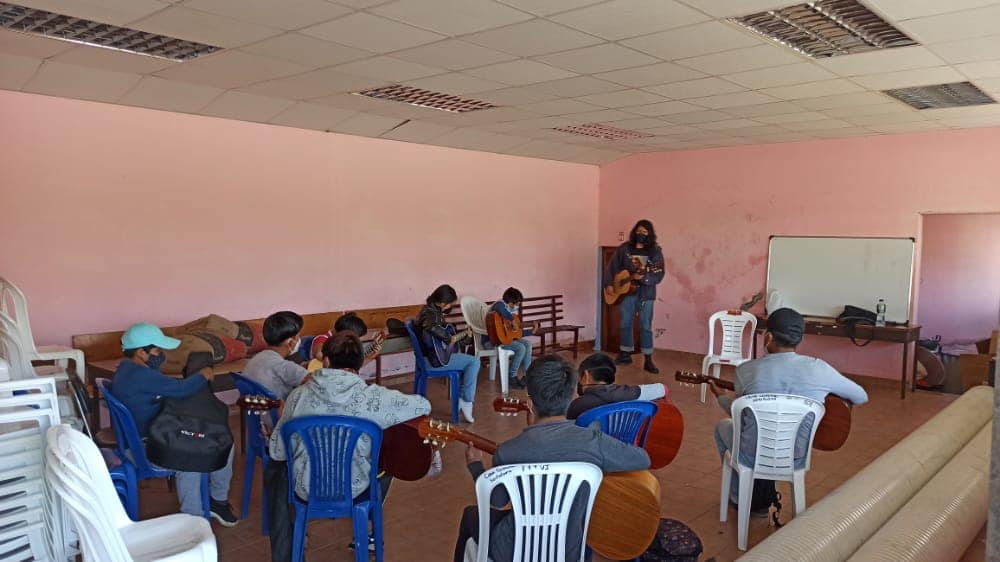
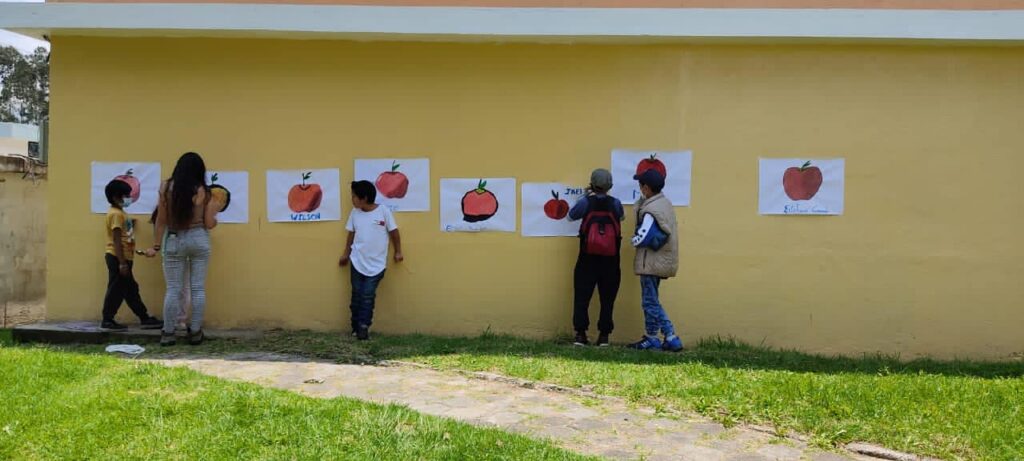
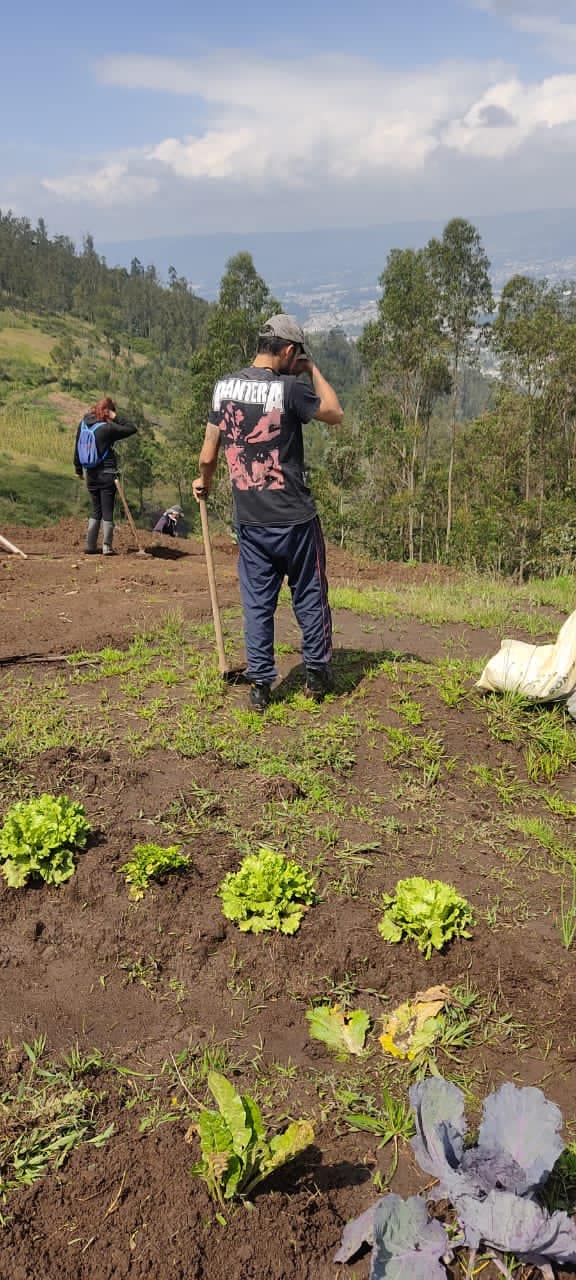
The actors involved in the organization are diverse, including students, workers, artists, researchers, teachers, and residents of the neighborhoods. In short, they are activists and an organized community that seek to combine their knowledge, between traditional and technical, to work the land in the orchards and generate necessary political reflections in these times. In Ecuador, national unemployment reached 13.3% of the Economically Active Population between May and June 2020, compared with 3.8% in December of 2019 (INEC 2020). The situation gets even worse for people living at the urban peripheries (Vega Solis & Bermúdez 2019). The orchards and “community pots” are a concrete response to face this difficult reality.
The two main limitations for the development of NI’s projects are funding and the levels of participation. Being a self-managed activity, the construction of community orchards has been sustained by volunteers’ work, such as minga[1], and by campaigns for the donation of tools and supplies done in social networks. Another way to collect funds is by preparing and selling food, and also offering paid workshops, for example, a Geographic Information Systems course was recently held. The orchards require constant work and unfortunately, participation is still sporadic. Of the 33 people registered as volunteers in the orchards, approximately half attend every weekend to work.
The activity is replicable, the orchards have expanded to three different areas of the city, and the work of the popular pots has spread among 10 peripheral neighborhoods in the north and south of Quito. As there are several vulnerable peri-urban areas in the city, work can continue to grow. However, to achieve this goal it is necessary to convene a greater number of participants committed to working on the land and promoting social transformation.
Natura Insurrecta has built community gardens from an environmental and social conscience, seeing them as a means for social transformation. As established by the founder of the organization:
(…) What we want to promote with the popular pots is to meet the needs of the people (…) But that is not the only purpose, we want to demonstrate to the people who are in the neighborhood, in the field, that by organizing ourselves collectively we can help each other” (Carlos, interview, 2021).
The urban community orchards developed by Natura Insurrecta in Quito are a demonstration that it is possible to generate broader changes at an urban scale regarding climate action and social justice. The sum of political action with collective work based on reciprocity practices becomes an organizational mechanism that improves people’s quality of life and support in the fight for the right to the city.
References
INEC – Instituto Nacional de Estadísticas y Censos. 2020. “Encuesta Nacional de Empleo, Desempleo y Subempleo (ENEMDU)” Indicadores laborales mayo-junio 2020, 1-49.
Testori, G., & d’Auria, V. 2018. Autonomía and Cultural Co-Design. Exploring the Andean minga practice as a basis for enabling design processes. Strategic Design Research Journal, 11(2): 92-102. May-August. doi: 10.4013/sdrj.2018.112.05.
Vega Solis, C., & Bermúdez Lenis, H. F. 2019. Informalidad, emprendimiento y empoderamiento femenino. Economía popular y paradojas de la venta directa en el sur de Quito (Ecuador). Revista De Antropología Social, 28(2), 345-370. https://doi.org/10.5209/raso.65618.
For this entry, an in-depth interview was conducted with the founder of Natura Insurrecta, Carlos Realpe. Also, participatory action research was carried out in the different gardens created by NI.
Finally, information was collected from social networks of the organizations analyzed. And a documentary video on the orchard’s initiative was reviewed, found at the following link: https://www.facebook.com/1573339092681322/videos/2109568965845500
Facebook Frente Ecológico Natura Insurrecta:https://www.facebook.com/Frente-Ecol%C3%B3gico-Natura-Insurrecta-1573339092681322
Facebook La Pobla: https://www.facebook.com/lapoblaresiste
[1] It is a communal work practice from the Andean Region that is traditionally used for agricultural purposes between indigenous peoples. It has also spread among other social groups as a form of social, economic, and political organization. The minga is one of many systems of community work and reciprocity where people do not expect anything in return apart from collective benefit (Testori & d’Auria 2018).